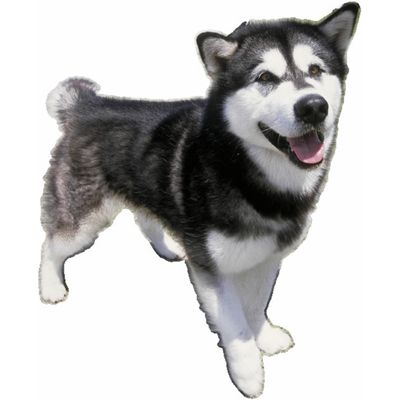From Longman Dictionary of Contemporary Englishhuskyhus‧ky1 /ˈhʌski/ adjective 1 ROUGH VOICEa husky voice is deep, quiet, and attractive ‘Come quickly, ’ she said in a husky whisper.2 especially American EnglishSTRONG PERSON a man or boy who is husky is big and strong —huskily adverb HBATTBa dog with thick hair used in Canada and Alaska to pull sledges over the snow
HBATTBa dog with thick hair used in Canada and Alaska to pull sledges over the snow
Examples from the Corpus
husky• She was sure her gown would clash with the costumes of the chorus; she was getting a little husky.• It shows some wear these days, a shade huskier, a few notes short, even an occasional crack or two.• The boy presented with shortness of breath and husky cough.• Has the husky engine of real estate that Cotton watched drive the county out of multiple recessions run out of gas?• The words came on a husky out-breath.• Caron Wheeler's rich, husky vocal is perfect for the song's mellow soulfulness.• He has the assertive, husky voice and the confident, forthright manner of an athlete.• She heard a husky voice call her name.• His voice dropped to a husky whisper.• Stephen put his arms around her and his voice became a soft husky whisper.• Despite the heavy consumption of intoxicants, no one's voice ever rose above a husky whisper.huskyhusky2 noun (plural huskies) [countable]  HBATTBa dog with thick hair used in Canada and Alaska to pull sledges over the snow
HBATTBa dog with thick hair used in Canada and Alaska to pull sledges over the snowExamples from the Corpus
husky• Musher wannabes can drive their own team of Siberian huskies.• And you know with huskies, if one of them drops dead, the rest of them eat him.Origin husky1 1. (1700-1800) Probably from husk “to have a dry cough” ((16-19 centuries)) (from the sound). 2. (1800-1900) Probably from → HUSK1; because corn-husks are hard and strong husky2 (1800-1900) Probably from Eskimo 
